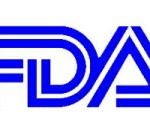In the battle against the bulge, it seems that more information isn't necessarily better. A new study from Carnegie Mellon University found that calorie intake information on restaurant menus doesn't help consumers use that info to make better choices. Julie Downs, the study's lead author, said, "there have been high hopes that menu labeling could be a key tool to help combat high obesity levels in this country, and many people do appreciate having that information available. Unfortunately, this approach doesn't appear to be helping to reduce consumption very much, even when we give consumers what policymakers thought might help: some guidance for how many calories they should be eating." In the study, purchase behaviors of 1,121 adult lunchtime diners at two McDonald's restaurants … [Read more...]
Cornell Study on Portion Size and Descriptive Labels
A Cornell University study titled "One Man's Tall is Another Man's Small: How the Framing of Portion Size Influences Food Choice" looks at descriptive food size labels and their effect on obesity. The food industry uses normative labels such as "super-size" to describe portion sizes and we don't know if consumers think that information is objective or subjective. And if consumers use those labels as information to choose products, regulations about those names could reduce consumption. For example, Starbucks "short" beverages are 8 ounces, while "tall" is 12 ounces. A McDonald's "large" soft drink is 32 ounces, and a "medium" is 21 ounces and a "child" portion is 12 ounces. Researchers wondered if normative labels matter, especially when the actual size information is also available. … [Read more...]
Plant Compounds Studied for Food Safety
The USDA and researchers are studying the ability of plant compounds to fight foodborne pathogens. One study, published in Agricultural Research magazine, looked at olive powder and other compounds and their ability to kill E. coli O157:H7 bacteria and reduce the levels of carcinogens in grilled meats. Heterocyclic amines are formed when meats are cooked at high temperatures; those compounds cause cancer. The scientists added high levels of E. coli O157:H7 to ground beef patties along with olive powder or other plant compounds. They cooked the beef to the safe temperature of 160 degrees F, then tested the patties for levels of E. coli and two of the amines: MelQx and PhIP. They found that olive powder performed the best, beating the performances of other compounds, including apple, … [Read more...]
White House Threatens Veto of House Agriculture Appropriations Bill
In a Statement of Administration Policy issued June 25, 2013, the White House stated it strongly opposes House passage of H.R. 2410, making appropriations for Agriculture, Rural Development, FDA, and Related Agencies programs for the fiscal year ending September 30, 2014. The Statement reads "it imposes harmful cuts in rural economic development, renewable energy development, nutrition programs, food safety, agricultural research, and international food aid. If the President were presented with H.R. 2410, his senior advisors would recommend that he veto the bill." The deadline for action on this issue passed more than two months ago. Congress has still not appointed conferees and agreed on a budget resolution. The White House said they are "deeply concerned that the WIC funding level … [Read more...]
CSPI Downgrades Splenda from “Safe” to “Caution”
The Center for Science in the Public Interest (CSPI) is downgrading sucralose, which is the artificial sweetener commonly known as Splenda, from the "safe" category to "caution" after an unpublished Italian study found the chemical caused leukemia in mice. This is the same independent lab that found aspartame caused cancers in mice and rats. All previous long-term feeding studies of sucralose conducted on animals were performed by the chemical's manufacturers. UPDATE: CSPI has now downgraded Splenda from "Caution" to "Avoid." Unlike other artificial sweeteners, sucralose can be used in baking, since the compound doesn't break down at high temperatures. CSPI objected to sucralose from the beginning. In 2008, a study funded by the sugar industry found that Splenda reduces beneficial … [Read more...]
Healthy Gut Bacteria May Protect Against E. coli
A study presented at the American Society for Microbiology general meeting last week in Denver, Colorado looked at the possibility that healthy gut bacteria could prevent pathogenic bacterial infections. Scientists at the University of Michigan Medical School raised rodents in a completely sterile environment, then gave some of them a dose of probiotic bacteria. Then they were given doses of enterohemorrhagic E. coli O157:H7 (EHEC), which causes hemolytic uremic syndrome. The mice who received the probiotic bacteria did not get sick. The mice who did not receive the probiotics developed HUS within a week. Other studies have shown similar results. A study published in the journal GUT in 2003 found that live probiotics protect intestinal cells from infection of enteroinvasive … [Read more...]
Center for Science in the Public Interest: Many Restaurant Kid’s Meals Unhealthy
Center for Science in the Public Interest has released a report detailing the nutrition shortfalls of children's meals offered in restaurants. They studied the types of children's menu items and the nutritional quality of those foods at the largest restaurant chains in the U.S. Of the 3,498 meal combinations offered specifically for children, 97% do not meet the expert nutrition standards for children's meals and 91% do not meet the National Restaurant Association's Kids LiveWell standards. Fifty-six percent of chains offering children's meals don't have even one meal that meets nutrition standards. The report also states that the percentage of meals that met nutrition standards increased from 1% to 3% since 2008. Since Americans eat out much more today than they did 50 years ago, … [Read more...]
CSPI Urges FDA to Determine Safe Sugar Limits in Soft Drinks
The Center for Science in the Public Interest (CSPI) has started a petition urging the FDA to determine safe limits on high fructose corn syrup and other sweeteners in soft drinks. Public health departments in various cities around the United States, including Boston, Los Angeles, Seattle, and Baltimore are supporting this proposal. You can find the petition by visiting the CSPI web site. Nutritionists say that a typical 20-ounce bottle of soda contains 16 teaspoons (more than 5 tablespoons, or 1/4 cup plus 1 tablespoon) of sugar from high fructose corn syrup. That is twice the daily limit recommended by the American Heart Association. That organization says that "although sugars are not harmful to the body, our bodies don't need sugars to function properly. Added sugars contribute … [Read more...]
USDA Proposes School Nutrition Standards for Snack Foods
Anyone who went to high school in the past 50 years undoubtedly knew about the "Snack Shack" or other dispensary that sold everything from sugary drinks to potato chips and beef jerky. The USDA has proposed nutrition standards that will mean all foods and beverages sold in schools must meet healthy nutrition standards. The Centers for Disease Control and Prevention calls these foods "competitive foods". They "compete" with school meals and most are high in added sugars, fats, artificial ingredients, trans fats, and sodium. The Nutrition Standards for Foods in Schools recommended by the Institute of Medicine divides these foods into tiers. In Tier 1, healthy foods are available for all students at all times of the day. In Tier 2, snack foods that meet nutritional requirements, such as … [Read more...]














